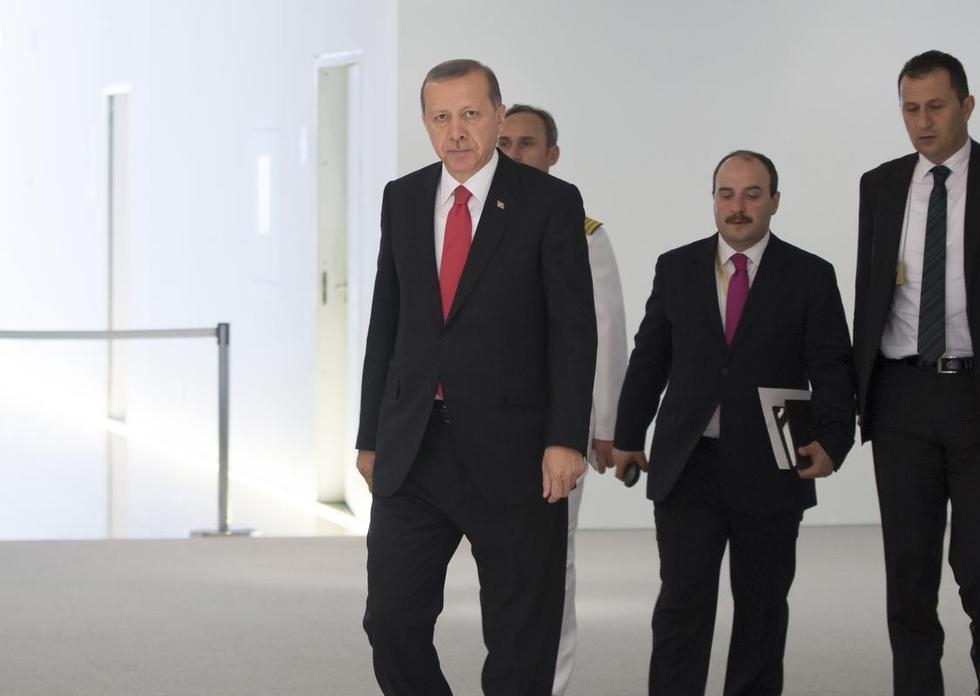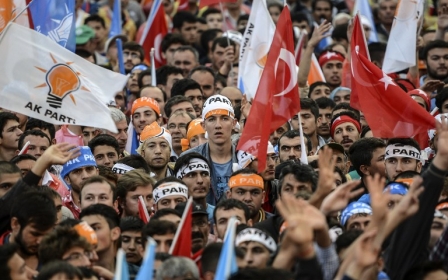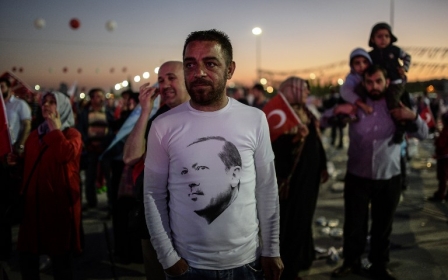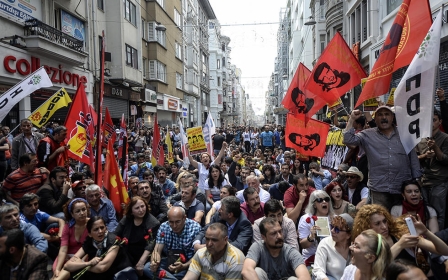Erdogan will ask AKP to form Turkey coalition

President Recep Tayyip Erdogan on Sunday said he will ask Turkey's ruling Justice and Development Party (AKP) to form a coalition government, after it lost its overall majority in legislative elections.
Should the AKP fail in the talks, Erdogan said he would then ask the second-placed opposition Republican People's Party (CHP) to form the government.
And only if those talks failed, Erdogan said, would he use his right within the constitution to call early elections.
"It is unthinkable that the country is left without a government," Erdogan told Turkish media aboard his presidential plane while returning from a trip to Azerbaijan.
"I will first give the mandate (for talks) to the head of the political party that won the most votes," he said, referring to Prime Minister and AKP leader Ahmet Davutoglu.
"If it (a coalition) cannot be established, I will then give the mandate to the head of the party that finished second," he said, referring to CHP chief Kemal Kilicdaroglu.
Erdogan gave no indication, however, of what his preferred combination for an AKP-led coalition would be.
Analysts have said while the AKP could team up with the third-placed Nationalist Movement Party (MHP), a grand coalition with the CHP is also possible.
Late last week, reports emerged that AKP and CHP were already in talks about a potential partnership.
Erdogan said snap elections would then follow if these talks failed, but said he preferred to term them "repeat elections" rather than "early elections".
He said that next week he would be inviting the leaders of all four parties who won seats in parliament for talks.
The AKP, co-founded by Erdogan, lost its overall majority in the 7 June polls for the first time since it came to power in 2002.
The party won the most votes but the result was a huge blow for Erdogan, who had wanted to change Turkey's constitution into a presidential system.
To the amusement of critics, the normally loquacious Erdogan made no public comments for almost four days after the poll.
But Erdogan, premier from 2003-2014, insisted that his authority remained intact, referring to his victory in 2014 presidential elections with almost 52 percent of the vote.
"I don't find discussions of presidential authority correct when the president has been elected with 52 percent of the vote," he said.
"I find this disrespectful to the national will. The president has been personally given this task by the nation."
New MEE newsletter: Jerusalem Dispatch
Sign up to get the latest insights and analysis on Israel-Palestine, alongside Turkey Unpacked and other MEE newsletters
Middle East Eye delivers independent and unrivalled coverage and analysis of the Middle East, North Africa and beyond. To learn more about republishing this content and the associated fees, please fill out this form. More about MEE can be found here.




